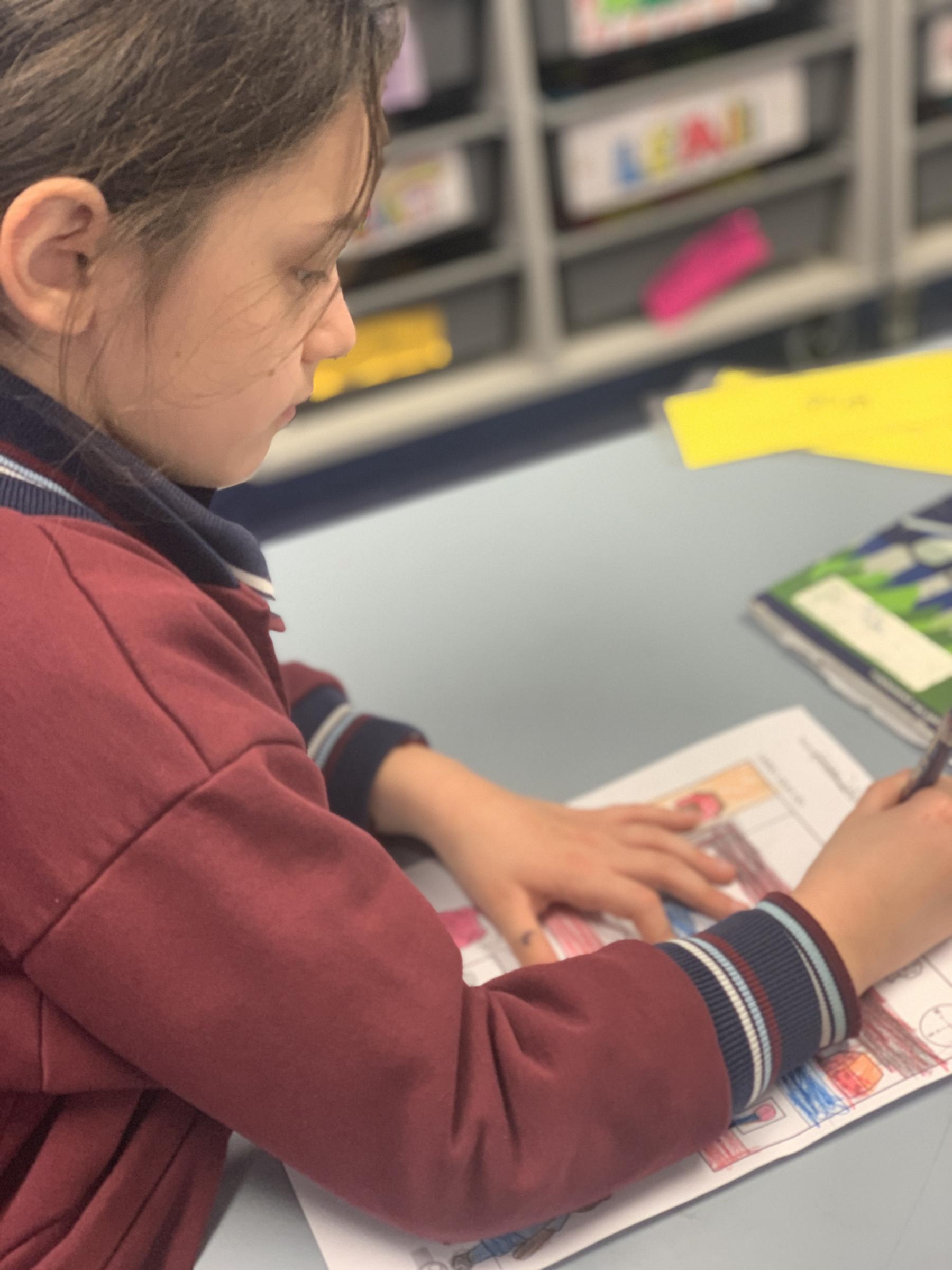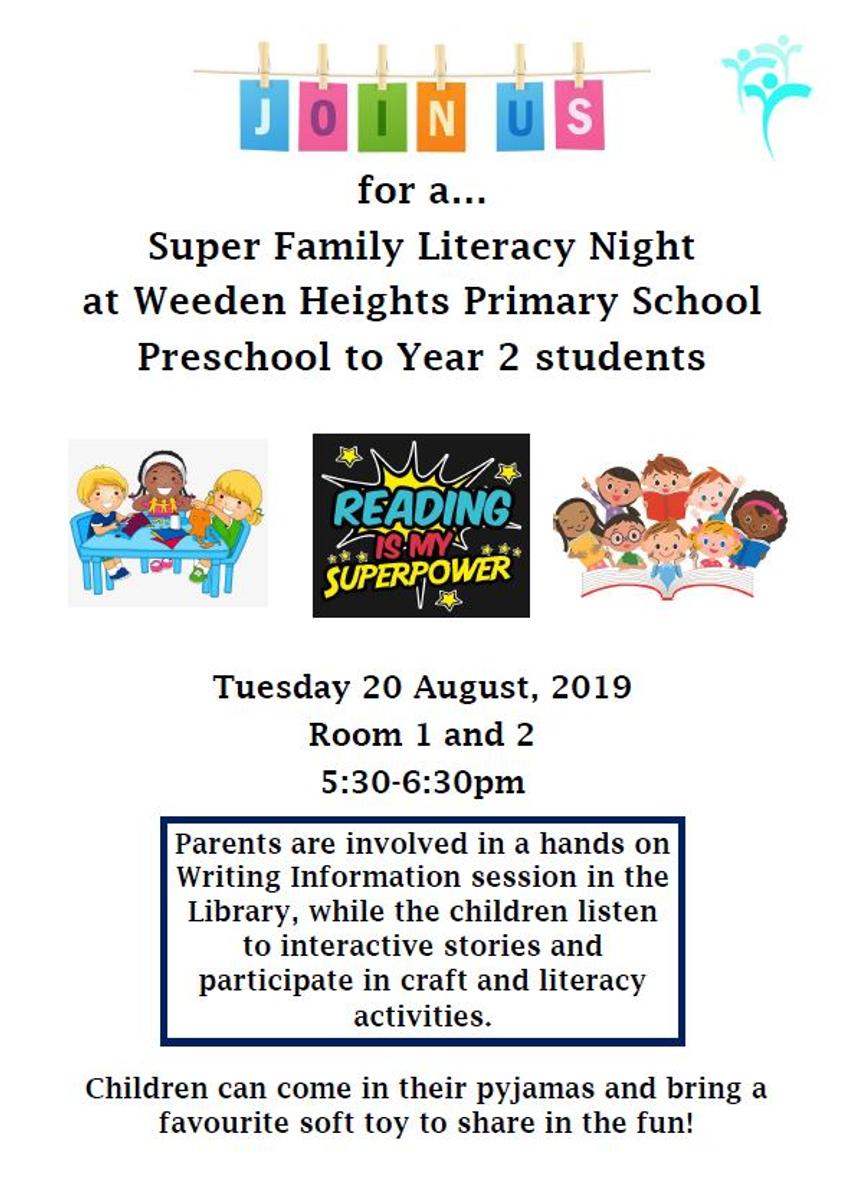Curriculum Corner

Helping your child learn to write - (Part 2, The primary years)
As your child moves through primary school, he or she will begin writing longer creative pieces, writing in different genres, and exploring non-fiction and persuasive writing.
Some general tips to help with your child’s writing in these years include:
- Continue to encourage them to write for everyday skills. This includes writing recipes, family messages, shopping lists and greeting cards
- Make sure they have an appropriate place to write, such as a desk in a quiet room
- Provide stationery, such as coloured pens and pencils, and different coloured paper
- It is always helpful to discuss the writing topic with your child before they start to write. This will give your child ideas and confidence to start writing
- After discussing the topic your child is writing about, you may want to write down a few arguments or story plot points to help them. They can then expand on these points.
- Encourage your child to write creatively in different genres, such as fantasy, realism, and adventure
- Encourage your child to write different types of literary texts such as poems, short plays or film scripts
- Use a book your child has read as a springboard into creative writing
- Persuasive writing will become a focus at school, particularly in high school. Encourage your child to write down their opinions and ideas about specific issues
- Encourage your child to edit their work for mistakes before they show you. They should also make sure the writing makes sense. Getting your child to read their work out loud is a good technique to find mistakes in writing
- Using a dictionary helps with spelling mistakes
- Using a thesaurus helps to expand your child’s vocabulary.
Some fun activities might include:
- Encourage your child to keep a diary where they record their feelings and experiences
- Write a review of a book or film. Encourage your child to have an opinion about the relative good and bad points, and how the film could be improved
- Create ‘found poetry.’ Pick 20 random lines and phrases from books or poems and arrange these lines into a new poem
- It can be fun to discuss the different possibilities of joining different lines, and the changes in meaning these create
- Give your child a topic that has two clear sides, such as “Homework should be banned.” Ask your child to write a few paragraphs outlining their arguments for and against
- If your child has recently finished a novel or film, ask them to write creatively in response to it.They might write an alternative ending, a short sequel, or write a series of diary entries from a character’s perspective.
Digital writing and creating
We now live in a world full of digital technology. To give your child the best chance of success in literacy, it is important that your child becomes comfortable with technology and can use various technologies to share their ideas and show their creativity.
Some activities your child might do include:
- Create a website with a specific interest in mind, such as a hobby, a sports team, or an historical event that interests them
- Write a blog on a hobby or interest
- Write a short film script and then shoot the film using a mobile phone, tablet or video recorder. Use editing software to edit the film and create titles
- Write a radio script and then record the script using a mobile phone, tablet, or digital voice recorder
- Write a short story and record it using a mobile phone, tablet, or voice recorder. Find digital film score music or sound effects to create mood and suspense
- Write emails or instant messages to family members
- Use presentation or slide software to create presentations for the family about a recent family holiday, or about something of personal interest.
Family projects
Take the opportunity to involve the whole family in reading and writing.
Some family projects could include:
- Email friends or family members
- Write messages together on your social networking sites to communicate with family and friends
- Read a book series together.
- Read together the instructions for a new household item to find out how it works
- Record family events or travel experiences in a journal or on an online blog
- Write plays and perform them for family and friends
- Write a film script together and make the film
- Read, select and collect news articles, and create an album about, for example, a sporting team, favourite animal, or leisure activity
- Solve crosswords, word puzzles, brain-teasers, and quizzes
- Browse libraries and bookshops together. Search for cheap books in charity stores and at garage sales
- Prepare for an outing together, including reading public transport timetables, maps, and information brochures.
Creating a literacy-rich home
Creating a literacy-rich home gives your child every opportunity to engage in reading, writing, speaking and listening. This kind of environment encourages your child to see these skills as an important and normal part of every day.
Here are some tips to create a literate home:
- Books. Lots of books. With lots of books your child will see reading as a normal activity and will always have something new to read
- Create a language-rich bedroom and home for your child, with alphabet and word posters, and labels
- Organise a bookshelf to display your child’s books
- Create a comfortable space for your child to read, perhaps with cushions and blankets, to encourage your child to see reading as a relaxing and fun activity
- Provide writing materials and a writing desk. Having different pens and pencils, and a place to write, encourages your child to write more often. Creating a special ‘writing box’ to store your child’s pens and pencils helps your child see writing as an important activity
- Collect props for imaginative play, and materials for craft projects. These can form the basis for rehearsing speaking and writing
- Set aside a time each week for ‘family reading time’ when every family member is reading, either individually or together
- Regularly discuss what your child is reading or writing
- Very importantly, read yourself. One of the most important ways to get your child reading is to model reading for your child. Children are encouraged to read – and to see reading as a normal part of the day – if they see their parents reading often. Siblings, grandparents, and other relevant persons in a child’s life can also be reading role models.
Writing Parent Information Session
Come along on Tuesday 20th August @ 5:30pm to our parent information session to hear more about the Writing program at Weeden Heights PS in detail. Hear from our Literacy leader about how to support your child at home with writing and how to provide opportunities to develop their skills. This will be happening during Book Week so look out for more exciting literacy activites that will be happening all week.

